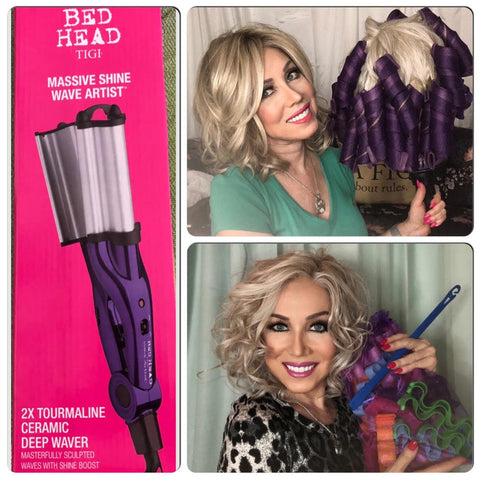Who is in Your Head?
(Wig shown above: Ready For Takeoff by Raquel Welch)
Of course, we all want to have approval from those we care most about, and that includes friends as well as family. From the time we were old enough to look around and observe others and our surroundings, we have been making judgments about what we see. It’s human nature to compare ourselves to our peers and to want to be as accomplished, attractive, and smart as those around us. And while we know we will be judged, sometimes we are our own harshest critic.
But what about your other critics? Did you grow up in a family with a strict parent with his or her own unbreakable code of what was good, bad, right, and wrong? Did your mother critique your looks, and did she key in on any perceived flaws and not mention the good? Does your spouse or significant other feel free to point out their opinions about everything, including your hair, clothes, and ideas, even if they are not asked? Do you have a friend or friends who you can count on to give you the once over and then point out everything they consider, not quite right? Or maybe that’s a sister, cousin, or other relatives. How do you take this in? Can you brush it off, or does it start to color how you think about yourself?
Even someone with a lot of confidence can be affected by constant negativity.
This is a common complaint with new wig wearers: “my husband/son/daughter/sister doesn’t like the wig on me.” Or hearing… “The wig makes you look….” fill in the blank. Sometimes, our friends or family member can’t even see that what they are saying is bothering us. Maybe they think their “constructive criticism” is something you want. Growing up I had an aunt whose mission in life seemed to be pointing out all of everyone’s flaws, to our faces, and with an audience. It was a great learning experience for me because I was careful to never do this to anyone. And I learned that not everyone’s opinion mattered.
As hard as it is, it is up to us to draw the boundary lines. Other than avoiding these people, is the only way to stop it. However, if we are asking for their input, we must learn to weigh what they say. How much weight does what they say carry for us? Is it out of proportion to reality? Are the person or people making critiques an expert on wigs or hair, for example? Are they just prejudiced when it comes to a color like blondes for example (do they love them or hate them)? Either way, it has no bearing at all on the blonde wig you just bought. Is it all about them or our wig purchase? It is crucial to figure that out before we take in any critique of our wigs.
The wig journey: No one warns you before you start down this path that you will have a psychological journey as well. It can be hard at times. Not only must you deal with your hair loss issues and try to wade through the vast amount of information on wigs, but you must also find one that you hope will work for you. One is rarely prepared to face an onslaught of opinions that others feel free to give.
My best advice is to always consider the source. Along with that, seek out help from professionals. Watch the wig demos on the WigStudio1 page, follow the reviewers on their pages, and soon you will feel more confident. It took me a while to learn that I just couldn’t take a wig from the box, plop it on my head and have it look like the woman in the ad. I had to get over the fear of “messing with it” and I had to learn how to style it.
Once you educate yourself about wigs, you will have the confidence to listen to your voice and learn to filter out others that have no real bearing on the issue at all.
Have a great holiday season, and remember, it is a good time of year to step out of our rut. If like me, you tend to stick with what you know works, sometimes you need a little incentive to try new styles and colors. It was like Christmas for me last weekend as I washed and put away three wigs and got out three others to start a new rotation. That reminded me that change is good and that trying new styles and colors can be very good.
For some reason, the shorter styles were calling my name. I put on Raquel Welch’s “Ready for Takeoff” and the cap was so comfortable that I hardly knew I had it on. Now, that makes me very happy.
Take care,
Vickie Lynn














